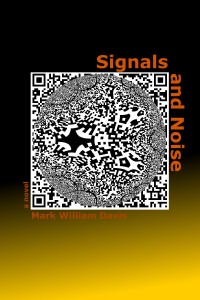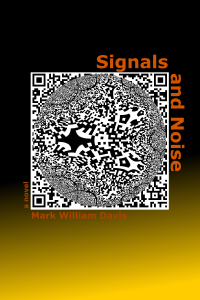 Monotony is the essential character of those late nights, so familiar to Zach and all his fellows. Monotony, but restful and calm, withholding the sharp edges and the intaglios of faces that define everyday interactions, while still remaining a part of the web of life. He could send an AetherNote or email and get a response, but without the complexities of the face had he been talking to the person. There were gigabytes of missed nuance, pursing lips, pauses, dilating pupils, flush responses—all lost behind the veil of electronica. Moreover, he could pause for that brief moment without any awkwardness, and they could pause as well, waiting for the ideas to filter out of the calamity of neural collisions. When everyone can order thoughts a hair faster than ever before in history, yet still interact deep into the night like they were sitting at a pub or around a campfire, there is an acceleration of competitiveness, a capacity for intellectual posturing. The new assholes, the new religionists, the new atheists, the new technologists, the strident politicos, the snarky personalities—everyone primps and props their online identities behind this veil of witty pretense, hearts racing as they snap at the refresh icon, waiting for the cannonball retort.
Monotony is the essential character of those late nights, so familiar to Zach and all his fellows. Monotony, but restful and calm, withholding the sharp edges and the intaglios of faces that define everyday interactions, while still remaining a part of the web of life. He could send an AetherNote or email and get a response, but without the complexities of the face had he been talking to the person. There were gigabytes of missed nuance, pursing lips, pauses, dilating pupils, flush responses—all lost behind the veil of electronica. Moreover, he could pause for that brief moment without any awkwardness, and they could pause as well, waiting for the ideas to filter out of the calamity of neural collisions. When everyone can order thoughts a hair faster than ever before in history, yet still interact deep into the night like they were sitting at a pub or around a campfire, there is an acceleration of competitiveness, a capacity for intellectual posturing. The new assholes, the new religionists, the new atheists, the new technologists, the strident politicos, the snarky personalities—everyone primps and props their online identities behind this veil of witty pretense, hearts racing as they snap at the refresh icon, waiting for the cannonball retort.
Democratizing it is, but with the side effect of drowning out the instant, unfiltered and emotive response on the one hand, and the dramatically conditioned and elaboratively intellectualized riposte on the other. There was too much lag for spontaneity and too little for detailed flourish. It is a channel that emphasizes bluster and bombast in securely short constructs. And thought followed suit. Thought on the average got better, but the best thought was drowned out by the long tails of opinions washing through them like the wake of a whale.… Read the rest

